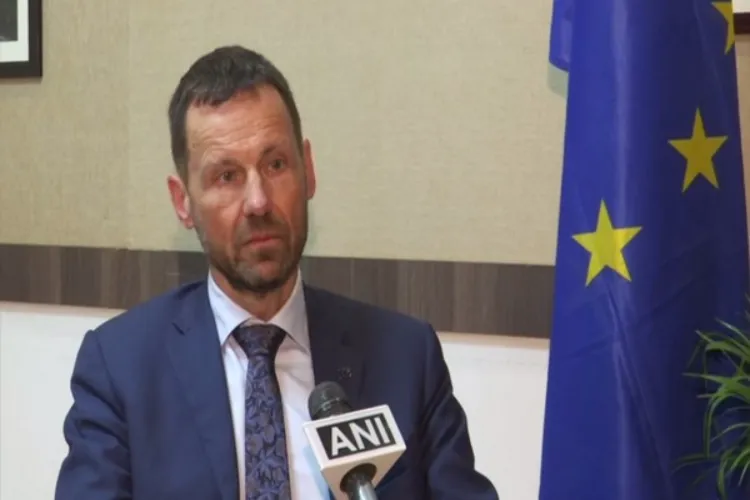Kabul, Afghanistan)
European Union special envoy for Afghanistan Tomas Niklasson called for the reopening of schools for Afghan girls above sixth grade and said women’s education was vital to Afghanistan’s progress, TOLOnews reported.
Niklasson wrote on Twitter: “Schools must be reopened or reopened across Afghanistan to provide girls of all ages with access to quality education in the more affluent #Afghanistan, along with their brothers,” the special envoy expressed his concerns about Afghan women’s rights.
Meanwhile, Rina Amiri, the U.S. special envoy for human rights and women in Afghanistan, also condemned the plight of Afghan women in the war-torn nation, saying respect for the rights of all Afghans in Afghanistan is vital, no way to move forward and a to become a legitimate member of the international community without respecting the rights of all Afghans, especially girls’ right to education. This is the basis for any progress in Afghanistan,” Rina Amiri said in a tweet.
However, Islamic Emirate spokesman Zabiullah Mujahid dismissed the claims about the worsening situation of Afghan women, saying: “Efforts continue, officials are trying to find solutions according to Islamic law,” reported TOLO News.
The Taliban in particular were publicly criticized around the world after they closed the Paktia girls’ schools after a brief opening. This triggered serious reactions inside and outside Afghanistan. Dozens of girls took to the streets in central Paktia on Saturday to protest the closure of their schools, Tolo News reported. Videos of the protests went viral on social media, sparking strong reactions from the Afghan public, as well as prominent politicians and human rights defenders.
According to TOLO News, several human rights and education activists issued a recent open letter urging world leaders to put diplomatic pressure on the Taliban to reopen secondary schools for girls in the war-torn country.
Additionally, HRW’s Barr said in a previous statement that the Taliban’s stripping back of the rights of women and girls began immediately after they took power on August 15, 2021.
Since the Taliban seized power in Kabul last year, the human rights situation has been exacerbated by a nationwide economic, financial and humanitarian crisis of unprecedented proportions.
The Taliban dismantled the system to respond to gender-based violence, erected new barriers for women to access health care, prevented women’s aid workers from doing their jobs and attacked women’s rights activists.
With the withdrawal of US troops from the country, large-scale violence was unleashed, causing political insecurity in different parts of the country. At least 59 percent of the population is now dependent on humanitarian aid – an increase of six million people compared to early 2021, according to UNAMA.

